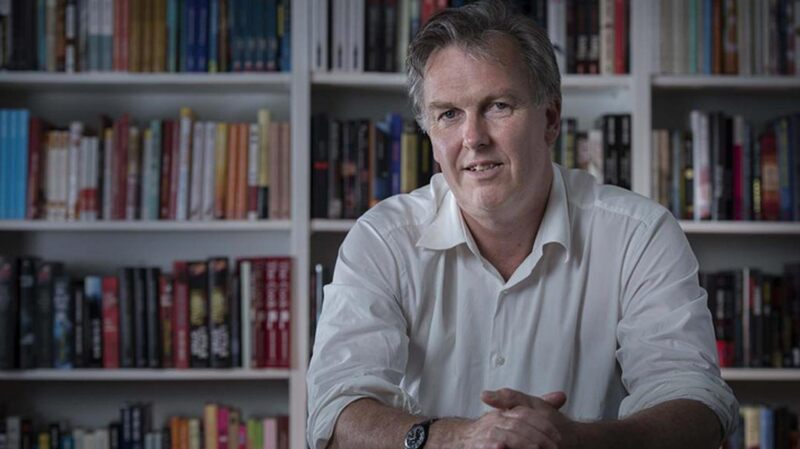You are viewing your 1 free article this month. Login to read more articles.
Campaign urges action with days left before copyright consultation ends
Organisers of the Save Our Books campaign against changes to the UK’s copyright laws have called on supporters to make their voice heard before the government’s consultation ends on 31st August.
The Intellectual Property Office consultation considers a weakening of copyright rules used for exporting books around the world. But changing the way the copyright exhaustion rules work would pose a danger to the industry, campaigners warn. They argue that because author royalties on export sales are much lower than in the UK market, if copies from around the world are sold back into the UK an export sale risks eroding the corresponding domestic sale.
The Publishers Association said it was aware of more than 4,000 letters being sent to MPs since June on the issue and said the campaign “must not stop” despite the consultation closing next week.
C.e.o. Stephen Lotinga told The Bookseller: “In our consultation response we have outlined the disastrous consequences of weakening copyright as is being considered. As the consultation period draws to a close I want to thank everyone who has supported the Save Our Books campaign – thousands of letters have been sent to MPs, many publishers and partners have responded to the consultation directly, thousands of authors signed the open letter and we have seen information about this campaign being shared far and wide.
“Despite the consultation closing on Tuesday, the campaign must not stop. It is too important. We will be continuing to bring this issue to the attention of parliamentarians and asking them to ensure the government sees sense. We urge you to do the same.”
Isobel Dixon, m.d. of Blake Friedmann and president of the Association of Authors’ Agents, added: "The question of parallel trade and which post-Brexit copyright exhaustion system to adopt – or ideally, retain – is an existential issue for authors and all who work in the publishing industry and the wider book trade. The wrong decision – as a system of international exhaustion would undoubtedly be – will fundamentally undermine an exceptional industry that plays a vital role in the national life and around the globe, with the UK being the world’s biggest exporter of books. It will have a hugely negative ripple effect in allied creative industries and in the end it will be detrimental to readers too – effectively reducing production quality, narrowing choice and diminishing diversity, with a cultural ‘flattening’ effect without the assurance of consumer gain.
"The sense of urgency and awareness of risk at this crucial moment is highlighted by the thousands of author signatories to the Save Our Books campaign, speaking out against a move to international exhaustion – and thousands of letters to MPs too. As author Graeme Macrae Burnet has said: ‘It’s already tough enough to make a living as a writer and the proposed changes to the copyright regime could further undermine authors’ ability to be fairly compensated for their work. If we value the contribution that the publishing industry makes to the UK economy and wider culture a change to international exhaustion must be vigorously opposed.’
"Printed books are already very reasonably priced in the UK in comparison to key markets in the rest of the world. In some places where they are cheaper, quality is lower and piracy abounds – risks we would further open our doors to with international exhaustion. Price-wise, consumers also have the choice of digital formats, e-book and audio, from the time a book is launched. In a race to the bottom via the international exhaustion route we would see the legacy gains of the industry, the labour of authors and the efforts of those who publish them all recklessly tossed under the bus. Only internet retailers will win the ‘international exhaustion’ race."
Society of Authors (SoA) chief executive Nicola Solomon spoke of the "united front" between the SoA, PA, AAA and Authors’ Licensing and Collecting Society (ALCS) on the Save Our Books campaign. She stressed: "We must push back on the idea that international exhaustion is consequence-free and means cheaper prices for readers. That is not the case.
“New Zealand adopted an international exhaustion regime many years ago. Yet the average sale price of a book is £11.51, compared to just £8.70 in the UK. The average sale price of an English-language edition in India, meanwhile, is one-third of its UK equivalent at just £3.14. It is not hard to see the devastating consequences of mass parallel imports of cheap overseas editions for authors, who would face a double hit of lower royalty rates being paid on lower sale prices.
“This is a potentially existential issue for the industry. According to the Publishers Association’s research earlier this summer, up to 64% of publishers’ book revenue – equivalent to £2.2bn a year – could be at risk if the government adopts an international regime without protections for the book industry. That £2.2bn hit for publishers equates to £506m a year in lost royalty income to authors, illustrators and translators at a time when 60% of authors have received no help at all from the government during the pandemic, according to SoA spring poll data. Given that professional authors’ incomes are now less than £11,000 a year, this would have a devastating impact on the diversity of the industry and would mean fewer authors writing fewer books for fewer people.
“We cannot allow that to happen when diversity in the industry is such a pressing concern. Last summer’s brilliant Rethinking ‘Diversity’ in Publishing report by Goldsmiths, Spread the Word and The Bookseller bears this out. We need more authors, telling more stories to more readers, not the opposite. The government should be levelling up the UK’s high copyright standards, not tearing them down in the vain hope of making books cheaper.”
Barbara Hayes, deputy chief executive of the ALCS, also emphasised how the current UK copyright regime is considered to be the "gold standard" because it enables writers to succeed at home and abroad.
She added: "The publishing industry has warned that a shift to an international exhaustion regime could lead to major losses of revenue across the industry. This will further undercut authors’ incomes and will mean fewer authors and fewer books for readers. It is also particularly concerning the effect this would have on the diversity and accessibility of writing as a profession. The All Party Writers Group, in a report from May this year, made clear that having a career as an author is in danger of becoming an option only for the privileged. The recent ‘Boundless Creativity’ report by DCMS centred one of its recommendations for recovery of the creative sector on diversifying and nurturing talent. The government will be unable to achieve this goal if any drastic changes are made to the copyright regime as it will not only lose talent but close off writing as a viable career option for many.”
Earlier this month figures including Kazuo Ishiguro, Bernardine Evaristo, Hilary Mantel, Philip Pullman, Cressida Cowell, David Nicholls, Adam Kay, Reni Eddo-Lodge and Sophie Kinsella were among the 2,661 authors and illustrators who signed an open letter warning against the proposed changes.
Leading publishers including Pan Macmillan, Bloomsbury and HarperCollins also added their voices to warnings about the proposed change to copyright, saying it could "degrade quality" across the trade and is a "concrete threat" to the industry.














